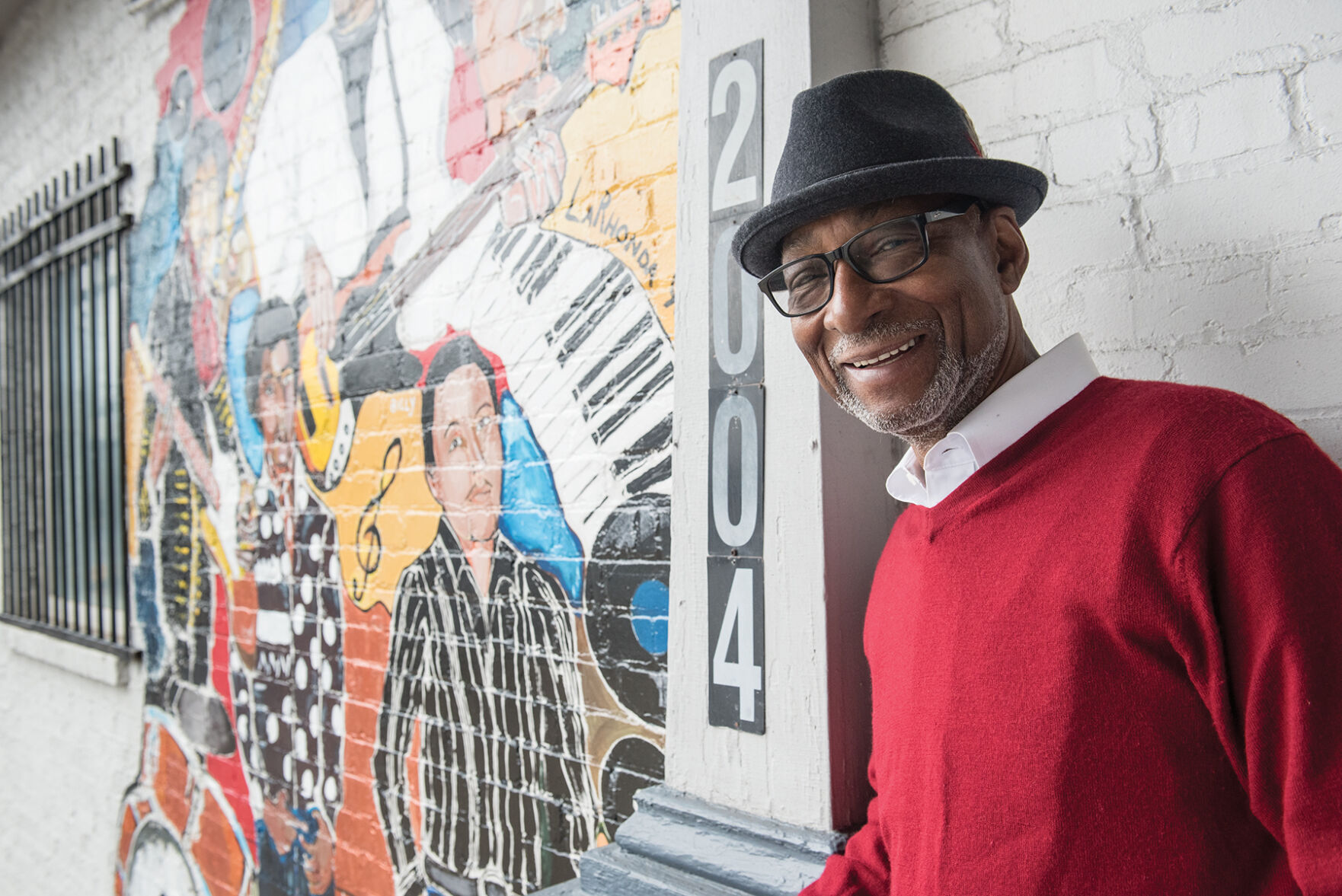When the names of legendary Black music communities are cited, you often and immediately hear about places in Harlem, Chicago, Philadelphia or Detroit, and such sites as Beale Street in Memphis or Central Avenue in Los Angeles. But Lorenzo Washington wants the world to know that Nashville’s Jefferson Street in its heyday was every bit as busy as any of those places, and its legacy equally as important.
A longtime fan and supporter of Jefferson Street and North Nashville’s history, Washington recently celebrated his 82nd birthday. He’s also among this year’s recipients of a Keeping the Blues Alive Award from the Blues Foundation in Memphis. Washington is busier than ever as founder and curator of the Jefferson Street Sound Museum. The museum, located at 2004 Jefferson St., is a nonprofit 501(c)(3) organization that not only celebrates North Nashville’s musical history, but also remains very involved in recognizing and publicizing contemporary artists and events.
“We’re busier than ever,” Washington tells the Scene. “We sponsor contemporary and vintage performers every first Monday with open mic night. Anyone from the community can be part of that. It doesn’t matter if you’re a soul singer, hip-hop artist, spoken word — the entire musical community is welcome.”
The museum is featured in the documentary “Exit 207: The Soul of Nashville,” which was written, produced and directed last year by Belmont University students under the guidance of professor Jennifer Duck. Washington also regularly does speaking engagements at schools, and the museum is frequently visited by students and tourists. A museum podcast can be accessed via Jefferson Street Sound’s website, and visitors can see an extensive and impressive array of exhibits, photos, rare memorabilia and information on the cultural impact and importance of Jefferson Street. The museum also presents live concerts each month, including a recent show featuring famed soul vocalist Charles “Wigg” Walker.
“I got involved in Jefferson Street in part because I had a driver’s license,” Washington recalls. “My friend Herbert Hunter had an audition and needed a way to get there. I took him and became his regular driver.”
Through that beginning, Washington was a witness to musical history, seeing the greats performing in the many clubs then active in the Jefferson Street vicinity.
“The first people that I saw were Jimmy Church, my friend Herbert of course, Little Richard,” says Washington. “I remember seeing Jimi Hendrix. Ray Charles came through here looking for Hank Crawford, who was attending TSU at the time. He recruited him for his band.
“There’s absolutely no place in this country I would say had more activity than Jefferson Street did when it was in its prime,” he continues. “All the greats came through here. I remember when Etta James came to town. There was a time when you could go from club to club and see something different — the blues, soul, jazz, you name it, it was here on the street. But the interstate took all that away.”
Fifty years after I-40’s construction, a cycle of poverty and displacement churns again in 37208
The roughly two dozen blocks from Fifth Avenue North to 28th Avenue North were home to some of the oldest Black churches in the city, as well as Engine Company No. 11, Nashville’s first African American fire hall. The Silver Streak, a ballroom near Jefferson, booked such iconic performers as Cab Calloway, Duke Ellington, Ella Fitzgerald and Count Basie. But the construction of Interstate 40 in the 1960s displaced hundreds of Black residents, destroying the Jefferson Street cultural district and splitting the neighborhood in the 37208 ZIP code in half.
In 2011, Washington created the Jefferson Street Sound Museum to commemorate that history. It’s housed in a building that was previously a restaurant and later a beauty shop. Jefferson Street Sound is now a recognized city landmark and cultural treasure. Washington’s efforts have earned national praise and other honors in addition to this year’s Keeping the Blues Alive award. He was recognized last year by Belmont University’s Global Honors program, and the National Museum of African American Music unveiled a new lobby exhibit, Living Legends: Lorenzo Washington, in his honor.
On April 3, the Third Annual Lorenzo Washington Day Gala will be held at the Millennium Maxwell House Hotel, located at 2025 Rosa L. Parks Blvd. But Karen Coffee, current vice president of the Jefferson Street Sound Museum, says she’d like to see the city put its tourist muscle behind the museum — and by extension North Nashville.
“Only a fraction of the money spent on tourism in this city comes into this neighborhood,” says Coffee. “This museum should be part of all the bus tours that come to town, and this community should get a much larger percentage of those tourist dollars and trade.”
“We’re still here, and we’re still doing a lot of things,” Washington says. “We welcome anyone who wants to know the real story about this community and what it’s meant not just to the city but the nation in terms of music, history and culture.”






